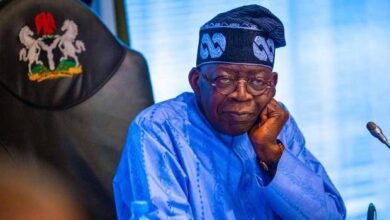Bobrisky files N1 billion lawsuit against VeryDarkMan

Bobrisky files N1 billion lawsuit against VeryDarkMan
Controversial crossdresser Idris Okuneye, widely known as Bobrisky, has initiated legal action against internet activist VeryDarkMan, demanding N1 billion in damages, following VDM’s recent claim.
The lawsuit arises from VeryDarkMan’s release of a voice recording, which he claims features Bobrisky admitting to bribing officials of the Economic and Financial Crimes Commission (EFCC) with N15 million to drop money laundering charges against him.
Bobrisky has vehemently denied these allegations, asserting that the recordings in question were artificially generated using AI technology.
Through her lawyers, Bobrisky has demanded that VeryDarkMan publish both a written and video apology within 24 hours.
Meanwhile, the House of Representatives has begun an investigation into bribery allegations involving the EFCC and the Nigerian Correctional Service (NCS).
These claims, put forth by VeryDarkMan, suggest that the EFCC dismissed money laundering charges against Bobrisky after accepting a bribe.
Rep. Patrick Umoh, who represents Ikot Ekpene/Essien Udim/Obot Akara Federal Constituency in Akwa Ibom State, sponsored the motion during Thursday’s plenary session.
He expressed concerns about the damaging implications of these allegations on Nigeria’s reputation, emphasising the need for immediate action to address perceptions of corruption within the country.
He said: “The publication alleges that the EFCC dropped money laundering charges against Idris Okuneye, also known as Bobrisky upon collection of the sum of N15,000, 000.
“The publication alleges that Idris Okuneye, upon conviction for abuse and defacing of the Naira, by the court, did not serve his time at the Nigeria Correctional Service, but was lodged outside the confines of the service.
“We are disturbed about the damning allegations against Nigerian critical law enforcement agencies-the EFCC and the NCS established by this hallowed chambers to fight correction and incarcerate persons convicted of a crime for correctional purposes respectively.”





